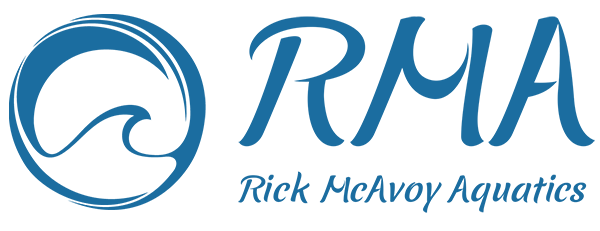Use the Water to Clean Up Your Golf Swing
Over the past 30 years practicing as a physical therapist and strength and conditioning specialist, I have worked with hundreds of injured golfers in my practice.
Golf is a one-sided rotational sport that can create significant muscle imbalance and injury.
Older golfers usually have more time to play but they often experience greater muscle imbalance, injury and pain.
In my practice I integrate water training with all my golfers because of the significant benefits water can provide.
Why should all golfers integrate the water into training?
Mobility/Flexibility Work:
In order to complete the proper golf swing, a certain amount of muscular flexibility and joint mobility is required.
The ankles, hips, thoracic spine, shoulders and wrists need adequate mobility for a fluid golf swing to occur.
If a golfer is lacking joint mobility or muscular flexibility, this will lead to increased compensation. Increased compensation leads to decreased power as well as increased risk for injury.
The waters supportive properties allow the golfer a unique training opportunity. Exercises promoting freedom of movement can be performed much easier with less pain.
Strength/StabilityWork:
Strength and stability, together with flexibility and mobility, provides the foundation for a more efficient and reliable golf swing,
Golfers need to have consistent strength throughout their entire swing.
The waters surrounding properties provide three-dimensional resistance so there is a more comprehensive training effect. Water provides an accommodating resistance, meaning the harder someone pushes the water, the harder the water pushes back. This is a very safe and effective way to train.
In addition, having resistance in multiple directions helps build balanced muscle strength to help reduce the risk of injury.
Balance Work:
An important part to the golf swing is maintaining balance throughout the entire golf swing. A balanced swing will enable the golfer to create maximum club head speed and create a more solid contact at impact.
According to TPI figures, over 60% of amateur golfers can’t balance for more than 10 seconds on one leg. This lack of balance can cause various compensations in the swing itself.
Single-leg balance exercises are important because the brain has to have an increased awareness of where the body is in space. Single leg balance exercises when performed with golfers has been shown to improve balance and that brain/body awareness called proprioception.
Water is 3-dimensional. Water provides three-dimensional resistance inherently, so the muscular and neurological systems receive a more comprehensive training effect than land.Training balance and coordination in a three-dimensional environment is both safe and effective. Golfers are more likely to attempt challenging movement patterns in the supportive water compared to land-based training because if they fall in the water they are much less likely to cause injury.
Golf Specific Work
Taking the golf swing into the water provides a much different dynamic than on land. Water provides 360 degrees of support and feedback to movement.
Water reduces the speed of movement and allows increased motor patterning producing a more proficient golf swing.
Golf is a very power driven sport. Training power in the water has been shown to be just as effective as power training on land with less muscle soreness.
The unique training effects that the water provides can help a golfer to break through a performance plateau and improve their game.
Recovery Work:
Recovery sessions in the water are a great way to get the body moving following a tough round of golf. Active recovery in the pool helps to reduce muscle soreness and rid the body of toxins created by the demands of golf.
By Incorporating the water into your golf training program you will be able to play longer and stronger and reduce your likelihood for injury.
Dr. Rick McAvoy, PT, DPT, CSCS has specialized in Aquatic Physical Therapy, Fitness and Sports Performance for over 30 years. Rick is the Owner Fluid Golf Training, a streaming training program to help golfers reduce injury, move better and swing better.
For more information about Fluid Golf training please visit.
